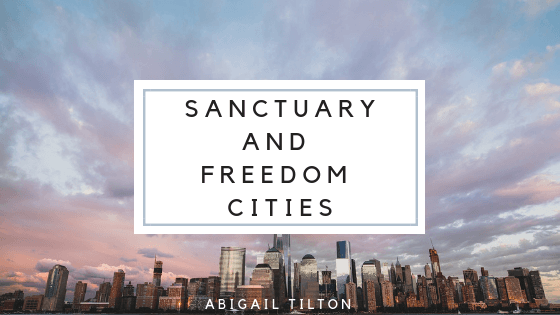You’ve probably heard about “sanctuary” cities in the US and how the Trump Administration has attempted to crack down on them, but you may not have heard about how that crackdown has given rise to “freedom” cities. In a sanctuary city, a person who is arrested and found to be undocumented won’t be held by police unless they’re being charged with a serious crime. If they were in a non-sanctuary city, their name would be put into a database, and they would most likely be kept in custody until they would be picked up by Immigration and Customs Enforcement (or ICE).
Attorney General Jeff Sessions has tried to undermine these sanctuary cities by withholding funds and resources for local law enforcement unless they comply with ICE’s policies, even though being undocumented is technically not a crime. This has given rise to “freedom” cities, cities that technically comply with ICE’s policies in ways that still protect the rights of undocumented immigrants.
For example, a strict Texas law allows police officers to ask those they stop about their immigration status. Naturally, those who are found to be undocumented would be reported to ICE, but in the freedom city of Austin, police inform those that they stop that they legally do not have to answer any questions about their status. In this kind of scenario, the police are complying with the law and can certainly report someone for being undocumented, but by reminding that person of their legal right to remain silent when questioned by the police, they are subtly undermining the law despite technically being compliant.
The Trump Administration has continually introduced new policies and laws that allow sanctuary cities to be stripped of grants and funding that would go towards local law enforcement efforts, but since freedom cities do comply with the Department of Justice’s policies regarding undocumented immigrants, they are in less danger of losing this funding. The goal of this movement is to tailor a broad set of ideals that do seem to uphold the immigration policies of this current administration while remaining as inclusive as possible.
In addition to Austin, Texas, other freedom cities include Madison, Wisconsin; Portland, Oregon; Ann Arbor; Michigan; and Albany, California. There are dozens of others, and more cities will most likely be dubbed “freedom cities” during this administration.

